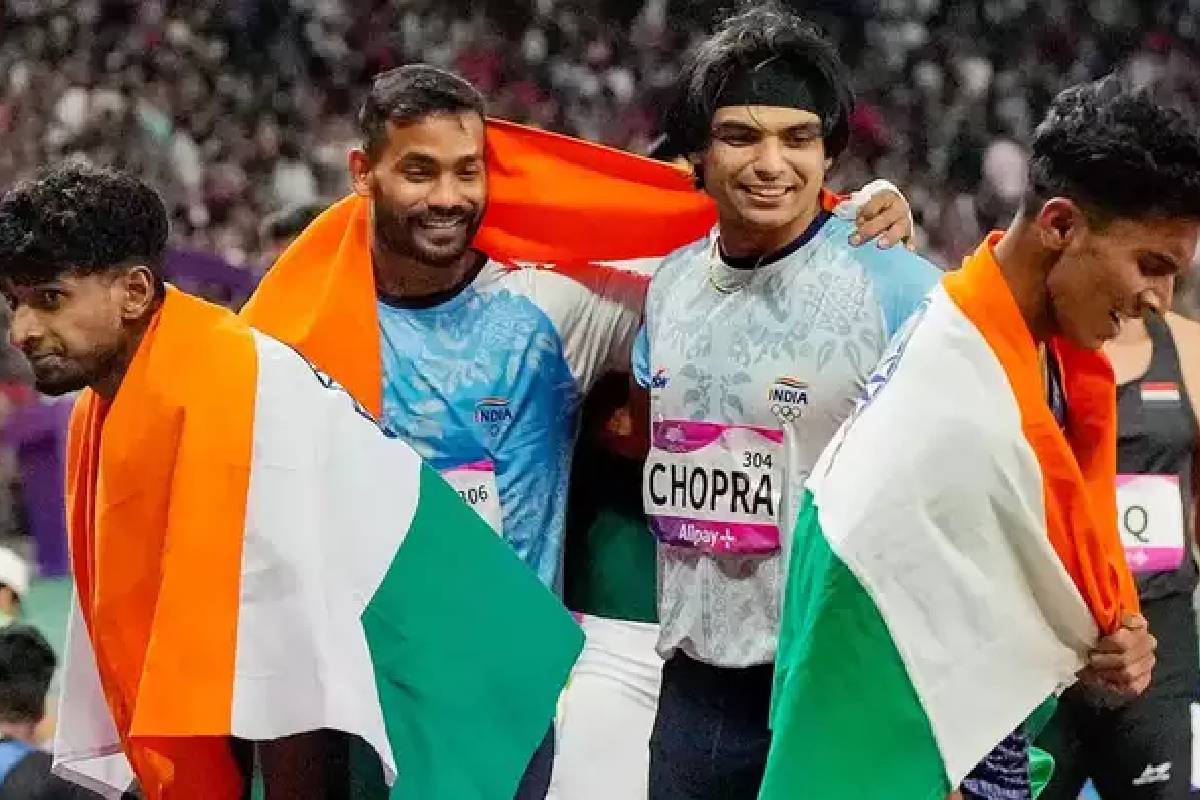


India has showcased its sporting prowess in the Asian Games with 100 medals, including 25 gold, in the ongoing edition in the Chinese tech city of Hangzhou. However, this stellar performance has failed to hide the underlying military tensions between the two nuclear-armed Asian rivals.
For India, the Games started on a sour note, and the shadow of tensions crept in when Beijing denied entry to three martial artists from Arunachal Pradesh — in a similar fashion to events that unfolded a few months back.
FLASH: Team India clinches Gold in Women’s Kabaddi at #AsianGames2022! 🥇🇮🇳 #IndianSports #AsianGames pic.twitter.com/DkK6oN2NZA
— The New Indian (@TheNewIndian_in) October 7, 2023
In July, China — after delays — issued stapled visas to Nyeman Wangsu, Onilu Tega, and Mepung Lamgu, instead of regular stamped visas for the World University Games. In a furious response, India pulled out its entire contingent from the Games and lodged a formal protest with the host country.
Fast forward to September, China denied them entry altogether. The Indian players were unable to download their accreditation documents from an official Chinese website.
Feels great to end 2023 with a season best throw at the @19thAGofficial! Incredibly happy for @Kishore78473748 too. 🇮🇳
Thank you all for your support, it has been a fantastic season. All eyes on 2024 now! 🙏 pic.twitter.com/9BYrf8UWo7
— Neeraj Chopra (@Neeraj_chopra1) October 5, 2023
In both cases, China cited “identity issues” — a reference to Beijing’s claim on Arunachal Pradesh, which it identifies as part of “South Tibet” and has named it “Zangnam.”
The nationalist government of Prime Minister Narendra Modi responded by canceling the visit of Sports Minister Anurag Thakur for the inaugural session of the 2022 Asian Games, which has been delayed due to the COVID-19 pandemic.
India’s foreign ministry said that the denial of entry to the three players amounts to a violation of the spirit of the Games and the rules of its conduct, which bar discrimination on grounds of ethnicity or geographical identity.
READ MORE: Manipur village girl Roshibina Devi shines in Asian Games
The north-eastern state has emerged as a flashpoint between the two Asian giants after their troops clashed along the de facto border, the Line of Actual Control (LAC), in May 2020, which resulted in the death of at least 22 Indian soldiers and an estimated number of 40 personnel of the People’s Liberation Army (PLA).
Since then, the border tension has permeated to almost every aspect of India-China relations — from trade, diplomatic engagement, to sports events.
There have also been serious allegations of discrimination against Indian players, with many participating athletes describing the behavior of Chinese officials as “never seen before” in any global sporting event.
Celebrated former India long-jumper and Athletics Federation of India vice-president Anju Bobby George made public her “annoyance” over the discrimination by accusing the Asian Games officials of “cheating” and “targeting Indians.”
READ MORE: India strikes first gold at Asian Games in shooting
The discrimination was so much so that the officials did not measure the first javelin throw of defending Olympics and Asian Games champion Neeraj Chopra. Later, Chopra said he had to throw seven throws for the first time. “I have never seen anything like this before,” he told newsmen. Female javelin thrower Annu Rani had to face a similar ordeal.
India’s star hurdler Jyothi Yarraji’s run was decried as foul in the 100m hurdles even though TV footage shows she was clearly not the first one to leave the starting blocks.
Mistakes can happen — once or twice! Not repeatedly, and that too, with the players of a particular country.
Such practices set a dangerous trend, and have the potential to widen the gap between already divided worlds.
Sports should be a realm where individuals can come together, regardless of their nationality or political beliefs, to celebrate human achievement and the pursuit of excellence.
Conflicts are part and parcel of our world, and they should not be allowed to overshadow sporting galas like the Asian Games, which aim to foster unity in the continent. Instead, disputes must be resolved through appropriate mediums.